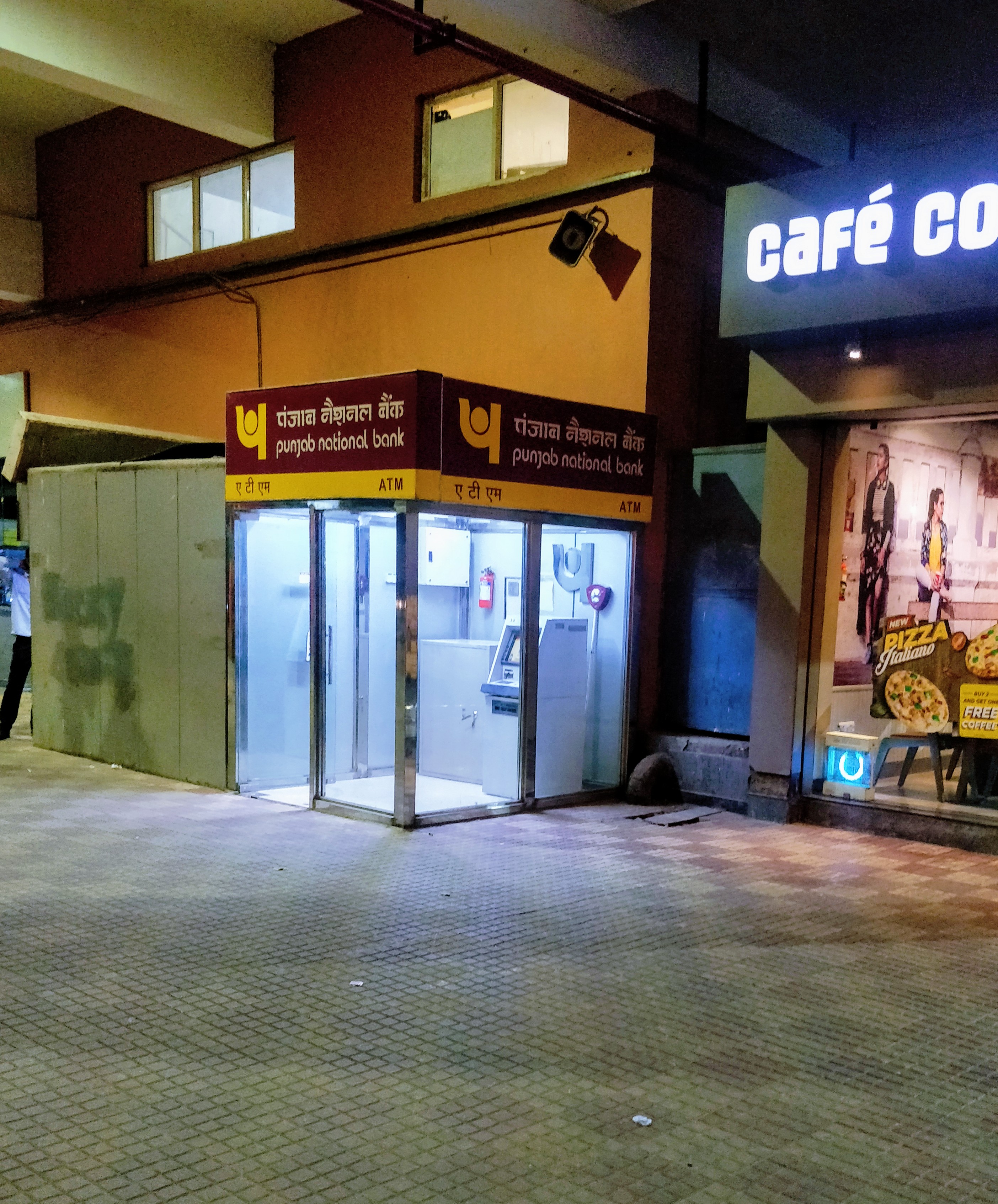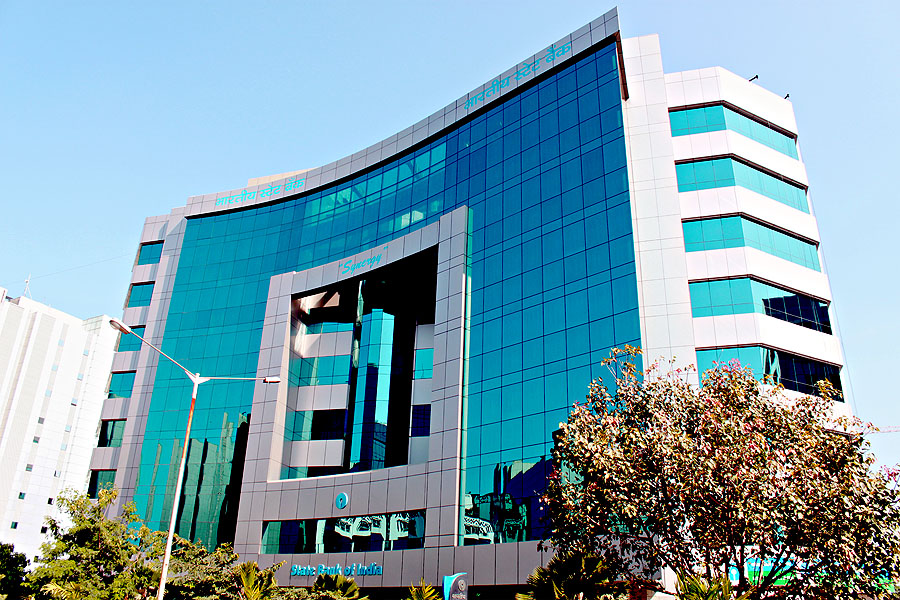|
Central Bank Of India
Central Bank of India (CBI) is an Indian public sector bank based in Mumbai. Despite its name, it is not the central bank of India; The Indian central bank is the Reserve Bank of India. History The Central Bank of India was established on 21 December 1911 by Sir Sorabji Pochkhanawala with Sir Pherozeshah Mehta as Chairman, and the first commercial Indian bank completely owned and managed by Indians. Early-20th century By 1918 Central Bank of India had established a branch in Hyderabad. A branch in nearby Secunderabad followed in 1925. In 1923, it acquired the Tata Industrial Bank in the wake of the failure of the Alliance Bank of Simla. The Tata bank, established in 1917, had opened a branch in Madras in 1920 that became the Central Bank of India, Madras. Central Bank of India was instrumental in the creation of the first Indian exchange bank, the Central Exchange Bank of India, which opened in London in 1936. However, Barclays Bank acquired Central Exchange Bank of Indi ... [...More Info...] [...Related Items...] OR: [Wikipedia] [Google] [Baidu] |
Public Company
A public company is a company whose ownership is organized via shares of stock which are intended to be freely traded on a stock exchange or in over-the-counter markets. A public (publicly traded) company can be listed on a stock exchange (listed company), which facilitates the trade of shares, or not (unlisted public company). In some jurisdictions, public companies over a certain size must be listed on an exchange. In most cases, public companies are ''private'' enterprises in the ''private'' sector, and "public" emphasizes their reporting and trading on the public markets. Public companies are formed within the legal systems of particular states, and therefore have associations and formal designations which are distinct and separate in the polity in which they reside. In the United States, for example, a public company is usually a type of corporation (though a corporation need not be a public company), in the United Kingdom it is usually a public limited company (plc), i ... [...More Info...] [...Related Items...] OR: [Wikipedia] [Google] [Baidu] |
Alliance Bank Of Simla
The Alliance Bank of Simla was a British-run though India-registered bank that commenced operations in Simla in 1874 under the management of James Lewis Walker. The bank was established to take over the business of the United Bank of India, established in 1866, which had operations in Simla and Umballa. Its board put the United Bank of India in voluntary liquidation on 21 March 1874, and Alliance Bank commenced operations two days later.''The Cyclopedia of India: biographical, historical, administrative, commercial'', (1907), Volume 1, p.248. After 49 years, Alliance Bank failed on 27 April 1923 due to speculation by its management. At the time that it failed it had 36 branches, including ones in Lahore, Lucknow, Peshawar, Rawalpindi, and Rangoon. History Alliance Bank expanded by taking over the operations of other failed banks. By doing so it was able to extend its branch network and reduce the competition that some of its branches faced. It was the liquidator for Punjab Bank ... [...More Info...] [...Related Items...] OR: [Wikipedia] [Google] [Baidu] |
Banks Established In 1911
A bank is a financial institution that accepts deposits from the public and creates a demand deposit while simultaneously making loans. Lending activities can be directly performed by the bank or indirectly through capital markets. Because banks play an important role in financial stability and the economy of a country, most jurisdictions exercise a high degree of regulation over banks. Most countries have institutionalized a system known as fractional reserve banking, under which banks hold liquid assets equal to only a portion of their current liabilities. In addition to other regulations intended to ensure liquidity, banks are generally subject to minimum capital requirements based on an international set of capital standards, the Basel Accords. Banking in its modern sense evolved in the fourteenth century in the prosperous cities of Renaissance Italy but in many ways functioned as a continuation of ideas and concepts of credit and lending that had their roots in the anc ... [...More Info...] [...Related Items...] OR: [Wikipedia] [Google] [Baidu] |
Public Sector Banks In India
Public Sector Undertakings (Banks) are a major type of government owned banks in India, where a majority stake (i.e. more than 50%) is held by the Ministry of Finance of the Government of India or State Ministry of Finance of various State Governments of India. The shares of these government-owned-banks are listed on stock exchanges. Their main objective is social welfare History Emergence of public sector banks The Central Government entered the banking business with the nationalization of the Imperial Bank of India in 1955. A 60% stake was taken by the Reserve Bank of India and the new bank was named State Bank of India. The seven other state banks became subsidiaries of the new bank in 1959 when the State Bank of India (Subsidiary Banks) Act, 1959' was passed by the Union government. The next major government intervention in banking took place on 19 July 1969 when the Indira government nationalised an additional 14 major banks. The total deposits in the banks nationalise ... [...More Info...] [...Related Items...] OR: [Wikipedia] [Google] [Baidu] |
Union Bank Of India
Union Bank of India, commonly referred to as Union Bank or UBI, is an Indian public sector bank headquartered in Mumbai. It has 120+ million customers and a total business of US$106 billion. After the amalgamation with Corporation Bank and Andhra Bank, which came into effect on 1 April 2020, the amalgamated entity became the one of the largest PSU banks in terms of branch network with around 8700+ branches. Four of these are located overseas in Hong Kong, Dubai, Antwerp, and Sydney. UBI also has representative offices at Shanghai, Beijing and Abu Dhabi. UBI operates in the United Kingdom through its wholly owned subsidiary, Union Bank of India (UK). The bank has a network of 8700+ domestic branches, 11100+ ATMs, 15300+ Business Correspondent Points serving over 120 million customers with 75000+ employees. History Union Bank of India was established on 11 November 1919 in Bombay (now Mumbai) by Seth Sitaram Poddar. The bank's corporate office was inaugurated by Mahatma Gandhi. ... [...More Info...] [...Related Items...] OR: [Wikipedia] [Google] [Baidu] |
Punjab National Bank
Punjab National Bank (abbreviated as PNB) is an Indian public sector bank headquartered in Delhi. The bank was founded in May 1894 and is the second largest government-owned bank in India, both in terms of its business volumes and its network. The bank has over 180 million customers, 12,248 branches, and 13,000+ ATMs. PNB has a banking subsidiary in the UK (PNB International Bank, with seven branches in the UK), as well as branches in Hong Kong, Kowloon, Dubai, and Kabul. It has representative offices in Almaty (Kazakhstan), Dubai (United Arab Emirates), Shanghai (China), Oslo (Norway), and Sydney (Australia). In Bhutan, it owns 51% of Druk PNB Bank, which has five branches. In Nepal, PNB owns 20% of Everest Bank, which has 122 branches. PNB also owns 41.64% of JSC (SB) PNB Bank in Kazakhstan, which has four branches. History Punjab National Bank is a PSU working under the government of India regulated by the Reserve Bank of India Act, 1934 and the Banking Regulation Act, ... [...More Info...] [...Related Items...] OR: [Wikipedia] [Google] [Baidu] |
Recapitalization
Recapitalization is a type of corporate reorganization involving substantial change in a company's capital structure. Recapitalization may be motivated by a number of reasons. Usually, the large part of equity is replaced with debt or vice versa. In more complicated transactions, mezzanine financing and other hybrid securities are involved. Leveraged recapitalization One example of recapitalization is a leveraged recapitalization in which the company issues bonds to raise money and then buys back its own shares. Usually, current shareholders retain control. The reasons for such a recapitalization include: * Desire of current shareholders to partially exit the investment * Providing support of falling share price * Disciplining the company that has excessive cash * Protection from a hostile takeover * Rebalancing positions within a holding company * Help to improve the stock of the company during a time of poor economic conditions Leveraged buyout Another example is a leveraged bu ... [...More Info...] [...Related Items...] OR: [Wikipedia] [Google] [Baidu] |
Central Bank Of India Building At Brabourne Road In Kolkata
Central is an adjective usually referring to being in the center of some place or (mathematical) object. Central may also refer to: Directions and generalised locations * Central Africa, a region in the centre of Africa continent, also known as Middle Africa * Central America, a region in the centre of America continent * Central Asia, a region in the centre of Eurasian continent * Central Australia, a region of the Australian continent * Central Belt, an area in the centre of Scotland * Central Europe, a region of the European continent * Central London, the centre of London * Central Region (other) * Central United States, a region of the United States of America Specific locations Countries * Central African Republic, a country in Africa States and provinces * Blue Nile (state) or Central, a state in Sudan * Central Department, Paraguay * Central Province (Kenya) * Central Province (Papua New Guinea) * Central Province (Solomon Islands) * Central Province, Sri L ... [...More Info...] [...Related Items...] OR: [Wikipedia] [Google] [Baidu] |
Indian Banking
Modern banking in India originated in the mid of 18th century. Among the first banks were the Bank of Hindustan, which was established in 1770 and liquidated in 1829–32; and the General Bank of India, established in 1786 but failed in 1791. The largest and the oldest bank which is still in existence is the State Bank of India (SBI). It originated and started working as the Bank of Calcutta in mid-June 1806. In 1809, it was renamed as the Bank of Bengal. This was one of the three banks founded by a presidency government, the other two were the Bank of Bombay in 1840 and the Bank of Madras in 1843. The three banks were merged in 1921 to form the Imperial Bank of India, which upon India's independence, became the State Bank of India in 1955. For many years, the presidency banks had acted as quasi-central banks, as did their successors, until the Reserve Bank of India was established in 1935, under the Reserve Bank of India Act, 1934. In 1960, the State Banks of India was giv ... [...More Info...] [...Related Items...] OR: [Wikipedia] [Google] [Baidu] |
Politics Of Burma
Myanmar ( also known as Burma) operates ''de jure'' as a unitary assembly-independent republic under its 2008 constitution. On 1 February 2021, Myanmar's military took over the government in a coup, causing ongoing anti-coup protests. Political conditions The history of Myanmar, formerly called Burma, began with the Pagan Kingdom in 849. Although each kingdom has constantly been at war with their neighbors, it was the largest South East Asian Empire during the 16th century under the Taungoo Dynasty. The thousand-year line of Burmese monarchy ended with the Third Anglo-Burmese War in 1885. The country was then administered as part of British India until 1937. British Burma began with its official recognition on the colonial map that marks its new borders containing over 100 ethnicities. It was named Burma after the dominant ethnic group Bamar, who make up 68 percent of the population. During World War II, a coalition of mostly members of the Bamar ethnic group volunteered ... [...More Info...] [...Related Items...] OR: [Wikipedia] [Google] [Baidu] |






